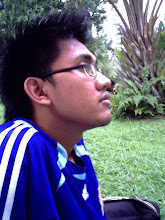Title : Understanding the Dimensions of Self-Exploration in Web-Based Learning Environments
By : Lih-Ching Chen Wang , Joshua Gisemba Bagaka
Date : 22nd June 2005
The aim of this study was to investigate the dimensions of self-exploration within a Web-based learning environment for college students.
An attitude survey was used for the study. The survey instrument included carefully selected phrases of advisement that sought to determine the desire or willingness to self-explore the web. The survey instrument consisted of five core factors with 17 attributes that asked participants to indicate their willingness to self-explore the Web. These 17 attributes were designed to promote the college students own desire to independently explore the websites related to their interest, relevance, expectancy and satisfaction.
All the subjects were scheduled to complete four hours of instruction on using the World Wide Web. The instruction covered the concepts of URL, search engines and using a search engine to find their favorite Web sites. Subjects completed the paper-and-pencil self-report survey after the instruction. For the dimension of interest, there are five categories which are Holiday, Sports, Famous U.S. Parks, Educational Opportunities and Internet shopping,
The subjects of the study were 209 college students, 120 male and 89 female. 41 of them spoke English as a second language (ESL), and 168 were native English speakers enrolled in a variety of disciplines in an urban university in the Midwestern United States.
From the findings, it is clear that the rank order of the five dimensions of self-exploration differed between male and female respondents. Sports had the highest level of self-exploration for males, while Internet Shopping had the highest level self-exploration among females. However, for both male and female respondents, Famous U.S. Parks had the second highest level of self-exploration, followed by Educational Opportunities. Holiday or Entertainment ranked fifth among males and fourth among females. The findings also stated that for both ESL and native English speaker respondents, the level of exploration differ significantly in the dimension of Holiday.
The research really interests me because it studies the students’ interest by using the Web-based learning. Through this study we can identify students’ interest which can be use in lessons as a topic to attract students to learn. By using the suitable category of dimension (Holiday, Sport, Shopping, etc.), we can attract students attention in class. It will be a useful aid for teaching and it will help the students to learn effectively.
In my opinion, I think the research is well conducted. But for the findings, it is better to have a visual presentation such as using the bar or pie charts. The researcher should also include category for age of the participants in this study to see the results according to the age of the participants.
In general, this study proposes students’ interest through self-exploration. This study shows that different gender has different dimension interest through self-exploration. This study also proposes that there are some differences in dimension interest between ESL and the native speakers. This may help instructor or tutor to distinguish what topic is suitable and interesting to be included in a lesson.
In Malaysian context, this study suggests teachers to consider the interest of the students before making any lesson plan. This study also proposes that teacher need to choose suitable text or topic for computer assisted language learning to encourage their learning and self-exploration. So, by this, teachers must take note and identify the students’ interest first to make sure that the lesson will be lively and interesting.

